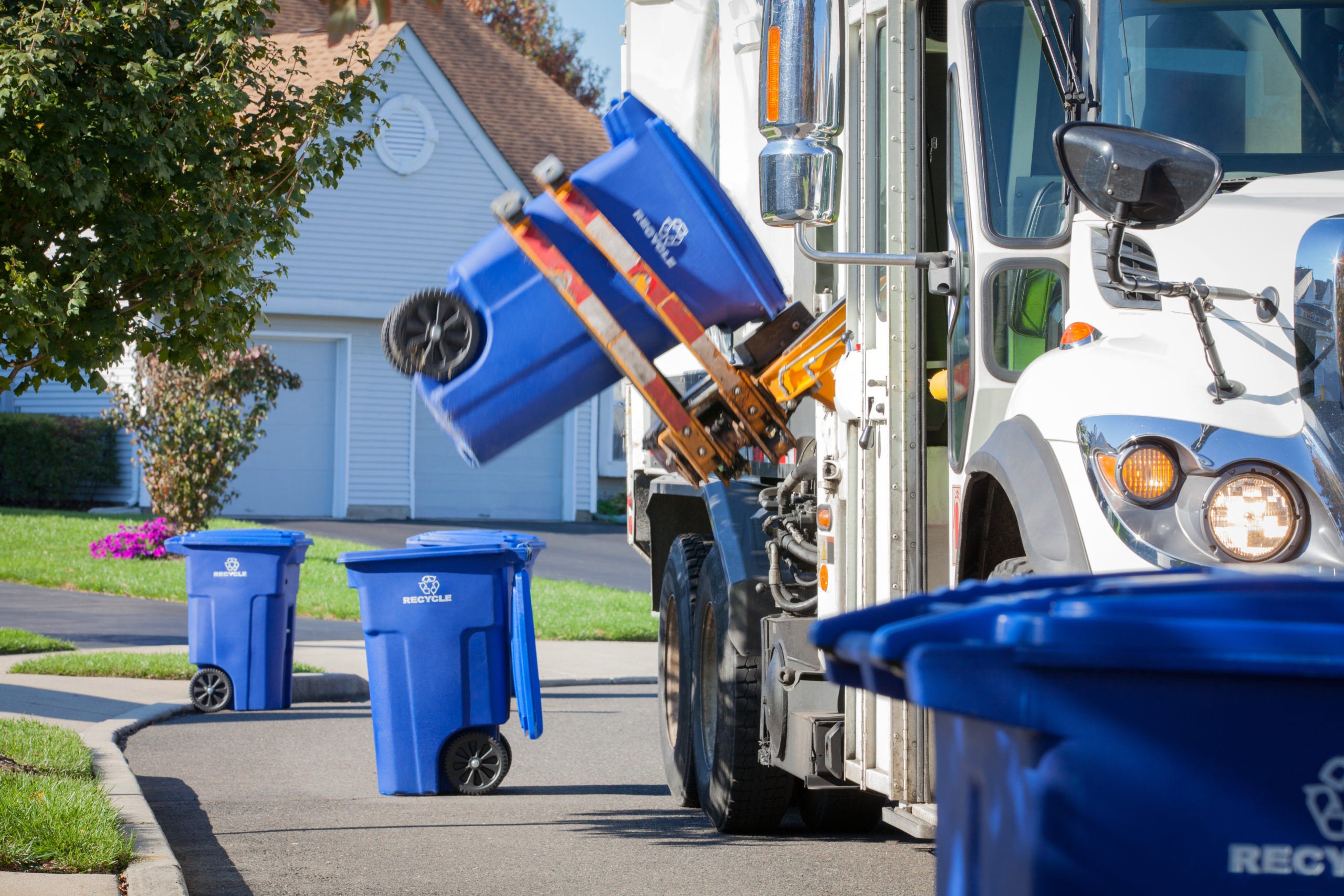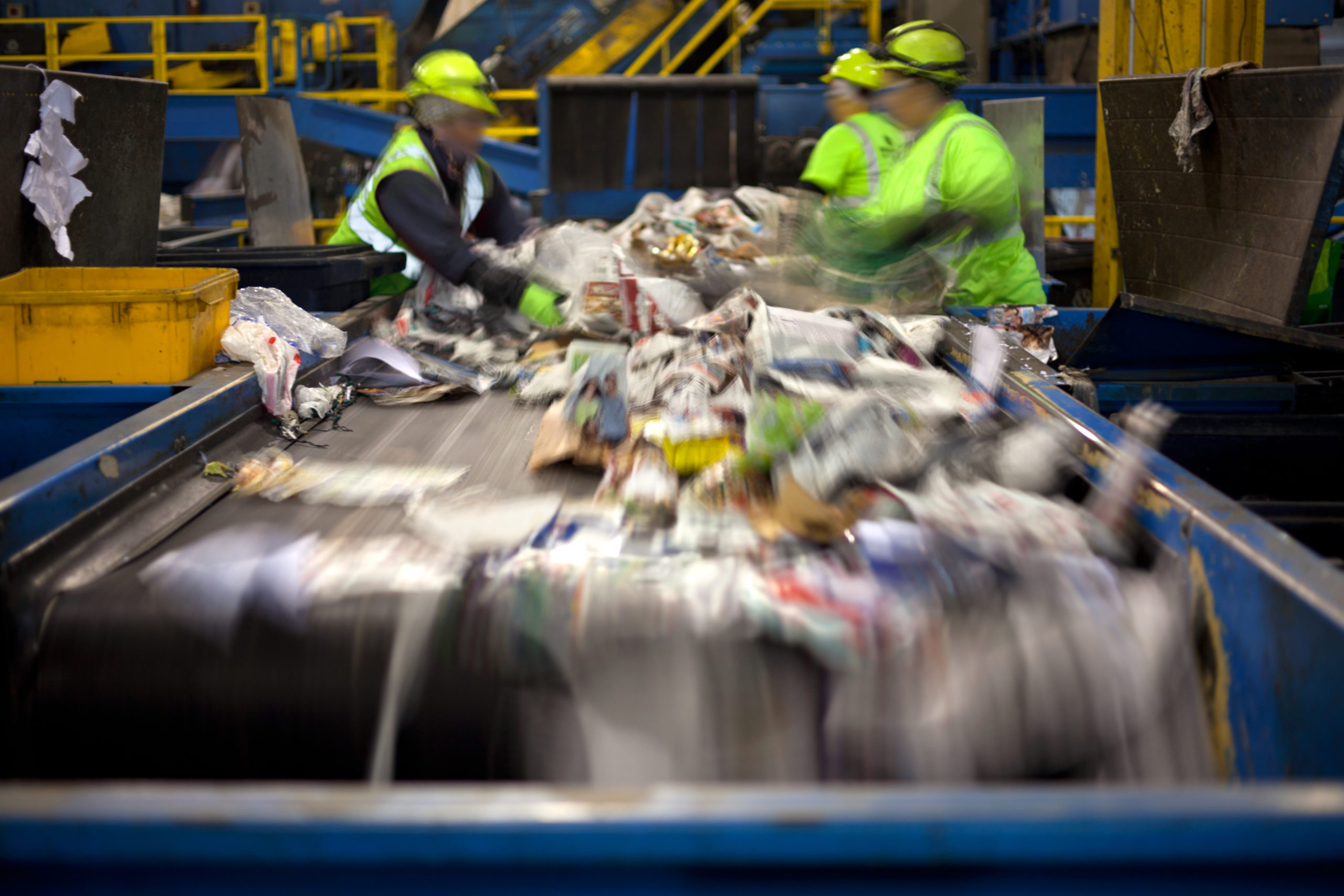The aging U.S. recycling system is at a critical juncture – it needs an overhaul to become more efficient, give equitable access to curbside recycling, and keep millions of dollars of valuable materials out of landfills. Companies are setting ambitious packaging sustainability targets and their customers care about making sustainable choices: 84% of consumers expect packages to be recyclable and made from recycled material, and 71% will go out of their way to support sustainable companies. But the system as currently designed is failing to meet these demands and missing the opportunity to unlock robust streams of recycled materials for corporate supply chains.[1] The status quo of residential recycling leaves millions of Americans unable to participate and delivers a disappointing recycling rate at 32%.[2] With a leveled-up U.S. residential recycling system, that rate will more than double.
But how do we level up the current system?
The U.S. recycling system has more than 9,000 local recycling programs, is funded by local governments and their residents, and delivers highly variable levels of service, infrastructure, and recycled commodities to market. With more than 100 million people in the U.S. lacking convenient access to recycling, and 90% of Fortune 500 companies lacking the supply of recyclable materials they need to meet climate goals, sustainable funding is needed to provide robust recycling and unlock the start of the recycled-content supply chain.
The release of The Recycling Partnership‘s newest report is part of a push to help the world envision a successful U.S. recycling system. “Paying it Forward – How Investments in Recycling Will Pay Dividends” outlines what it will take to create the healthy, sustainable U.S. recycling system we need, and what that investment will provide in return.
Our report shows a $30 billion return on investment, including:
- nearly 200,000 new jobs
- a total of 710 million metric tons of CO2 equivalent saved – that’s equal to taking 129,000,000 cars off the road.
- an estimated $9.4 billion saving in landfill costs; and
- an estimated $8.8 billion in new, high-quality recyclable commodities
Recycling in the U.S. is not broken, it just needs an expansive upgrade. Recycling provides jobs and a greener supply chain and the model to fix recycling in the U.S. is known and tested. What is lacking is the sustainable funding needed to scale the solutions.[3]
So, what’s the solution?
Producer responsibility is a policy tool that incentivizes sustainable packaging design and works to increase recovery to reduce the overall environmental impact of packaging, and it provides sustainable funding for a robust U.S. recycling system.
There are various producer responsibility laws worldwide – the primary concept requires packaging producers to fund the operational, infrastructure, and educational costs of recycling. Producers therefore play a prominent role in bringing critically needed capital to level up a struggling U.S. residential recycling system and support a robust supply chain.[4]
Those same producers and brands are increasingly leaning in and supporting the concept of producer responsibility as seen in The Consumer Goods Forum’s extended producer responsibility report and The Recycling Partnership’s policy report – both released last year and endorsed by large brands and retailers. The principles and concepts outlined show how producer responsibility can provide sustainable funding for recycling programs through an eco-modulated packaging and printed paper fee paid for by producers – with an eye to driving a more innovative, truly circular economy in the future.
We’re in a unique moment in time. States like Oregon and Maine have recently passed versions of producer responsibility laws, companies and policy makers alike are making sustainability and climate commitments that can be met by shared producer responsibility legislation, and the public is calling for more sustainable products. The time to fix the U.S. recycling system is now and we have the policy tools to make it a reality.
[1] Many of the world’s top 500 companies have signed global agreements to make their products reusable, recyclable, or compostable in the next decade and are willing to assume greater responsibility for their packaging and help improve our struggling residential recycling system.
ellenmacarthurfoundation.org/our-work/activities/new-plastics-economy/global-commitment
recyclingpartnership.org/americas-prefer-sustainable-companies/
[2] epa.gov/facts-and-figures-about-materials-waste-and-recycling
[3] recyclingpartnership.org/paying-it-forward/
[4] EPR is a type of product stewardship. Although the terms have been used interchangeably in the past, the Product Stewardship Institute now defines EPR as mandated stewardship compared to voluntary product stewardship programs.


